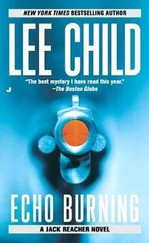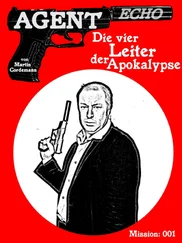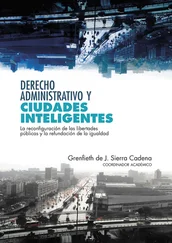She knew which of them had been Harry Spalding’s house as soon as she saw it. She knew because as she saw its clusters of ivy and black, sightless windows staring back, a chill gathered in her chest and gripped her heart. There was a stillness about the long lawn and the grouping of stunted ornamental trees providing shade by the path that wound from the front porch to the summer house. Thirty feet along the rise from where she stood, steps had been cut into the earth to give the owner access through a latched gate. She looked at the old brick and terracotta and knew that Harry Spalding had ascended those steps with his lupine stride and his cane gripped in his fist on his grinning journey home. She started, her eyes reclaimed by the house itself as she sensed a shape, just for a sly instant, at one of the upper-floor windows. A cleaner, she thought. Even in Southport, the Poles and the Filipinos would come to polish and scour. An address as prestigious as this had not sat empty for eighty years awaiting a spectre’s return. He had rented it for a summer only. He was here for a solitary season. He was not here now. But by God, Suzanne thought, shuddering with cold in the high June heat, he had left his baleful mark on the place.
Because she did not know what else to do, Suzanne went back to Lord Street and Southport Library. And then in the late afternoon, because she was facing a dead end, she left the library and walked up Nevill Street and found the promenade and the pier. Nevill Street embodied everything that was wrong with Southport as a modern tourist destination. Fat clouds of fish batter and beefburger grease scented the pavement. There was rock in stripy midget walking sticks, and toffee apples and pink candyfloss swollen in the breeze in bags of cellophane pinned and flapping against wooden racks. Men peered over pints with long-suffering wives from inside the picture windows of sad, modernised bars.
She walked the length of the pier, over the Marine Lake, over the start of the flat wastes of Southport beach and finally over the water as the sluggish wavelets of the Irish Sea began their shallow approach. The tram passed her on its path to the pier head. It was full of smiling day trippers. She waved back at a toddler waving at her though the rear window. She squinted over the railing to her right. She could see Blackpool Tower faintly through the heat shimmer over the salt marsh, rising on the peninsula thirty miles away.
At the end of the pier, she went into a modern and, to her mind, absurdly incongruous glass and steel visitors’ centre with a big display devoted to the wild birdlife of the Fylde Coast. To her left there was a café area with views out over the featureless wilderness of sea and sand. To her right, there was a cluster of antique machines she assumed had been salvaged from old amusement arcades in the resort. You could change modern pounds into old-fashioned copper pennies to use them. You got ten old pennies to the pound, which Suzanne knew was more robbery than exchange rate. But she thought she might have fun here, or at least lighten her prevailing mood. So she changed a couple of pounds.
After spending about half of them, she shuffled through her remaining pennies, looking at the dates. She got to the last one, King George V’s bearded profile stoical and aristocratic and resembling rather the slaughtered Romanov tsar to whom, of course, he’d been related, on one side. She flipped the coin. And the date underneath Britannia, sitting with her spear and shield on the reverse face of the penny, read 1927.
As she had known it would. She jumped. A child had put a penny in the slot for the laughing sailor and, inside his glass case, this sinister relic was swaying and wheezing in a show of mirth in his fusty, mottled blues. Next to him, there was a fortune-telling machine. You fed it money and your character and fate emerged neatly printed in tiny letters on a little rectangle of board. Suzanne fingered the flat, worn-smooth edges of her penny. She raised it to her nose and smelled its acrid, copper smell. Had Spalding handled it? Had he flung it bright and new among others across the Palace bar as a careless tip? She slipped the penny into her pocket. She did not want to know her fortune. She thought her fate predetermined. She knew who it involved, even if she was unsure of the what and precisely of the when.
Further to her right, beyond the old machines, a film about the history of Southport was showing on a projection screen mounted up on the wall. Images, grey and sunny at the same time, showed the great days of the outdoor pool and the flower show and the bandstand next to the town’s large cenotaph of dignified Portland stone. Water shimmered and roses bloomed in this monochrome world of long ago. She stiffened as she saw a scene from the 1920s. Black sedans prowled the length of Lord Street, sleek as panthers. Women in furs and cloche hats walked arm in arm and discussed the intrusion of the camera, smiling at it. She did not see Harry Spalding. She did not recognise any of the women as Jane Boyte. Fingering the old penny in her pocket, unaware that she was doing so, Suzanne sat down on the chairs before the screen and waited for the film to reach its conclusion and loop back again to its beginning.
Aboard Dark Echo
Night had fallen again by the time I awoke. I looked at my watch. The date wheel told me I had been asleep for a full twenty-four hours. I dressed in an incredulous rush and climbed to the deck. A fog had descended and under it the sea wore the still torpor of a lily pond. I had been forced to reduce to nothing the amount of sail we were carrying in the squall of the previous evening. Everything had been hauled in. Now I saw to my irritation and disappointment that nothing had been done to raise sail since. There was no wind. Every inch we carried should have been up in a bid to keep us moving, however sluggishly, on our course. Then I became aware that we were moving. The engine was not being used. But we were in motion, the Dark Echo travelling as though being tugged through the water, at a speed sufficient to leave a wake churning under the fog at our stern. We felt to be doing about ten knots. I walked to the wheel. The auto-steer was on, of course. I took a bearing from the binnacle compass next to the wheel. It was impossible. With no wind and no power and under no sail, we were doing about ten knots on a south-easterly course. We seemed to be in the grip of a current. And still more than a thousand miles off the coast of America, we were coursing swiftly back in the direction we had come.
My father must have done something to the auto-steer, I thought. But even if he had, I couldn’t understand from where the Dark Echo was deriving this propulsion. She weighed seventy tons. What freak force under the covering of the fog could be urging her on at such a rate? I needed to gather my thoughts. Nothing in my recent maritime schooling had prepared me for something so odd as this. The auto-steer had suffered a malfunction. That was clear. It might or might not be repairable, but for now there was no option. I had to switch it off. I had to take the wheel. I had to turn us swiftly about and raise sail and sit out the fog and, if necessary, the night. The North Atlantic was a very large expanse of ocean. We had plentiful supplies of food and water aboard. But we could not afford to lose our momentum. We had to keep going. It was what vessels under sail were obliged to do. If you failed to do that you became not just becalmed but helpless and you risked disaster and tragedy.
I realised then how hungry I was. I had not eaten anything substantial for well over twenty-four hours. Where was my father? What was he doing? I felt as though I faced this sinister crisis entirely alone. I was hungry and thirsty, too. And I was close to clueless about what was going on with the boat, still slipping urgently through the fogbound sea in the wrong direction under my feet. With a loud curse, I locked the wheel. I had to eat. I had to rouse my father. I would wrestle with the boat’s steering but could not do it without sustenance. He could make me a mug of soup. It was the very least he could do.
Читать дальше












